Travelling Docudays UA coordinator Lyudmyla Shestakova: “Our Network is synergy”
Travelling Docudays UA coordinator Lyudmyla Shestakova: “Our Network is synergy”
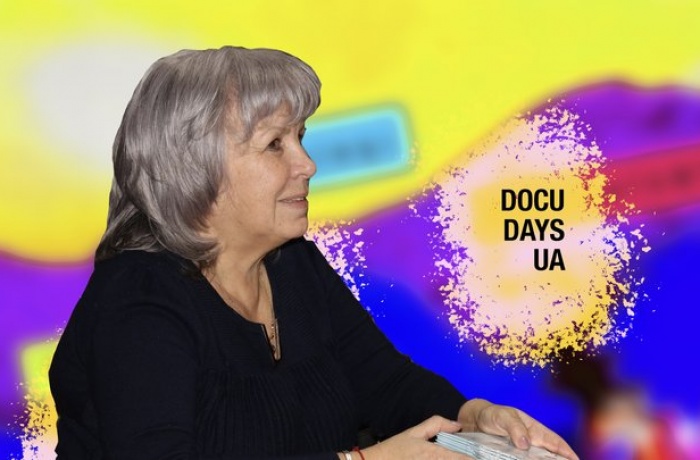
What helps Ukrainians to stop tanks with their bare hands? To fundraise millions for Bayraktar drones? The Travelling Docudays UA and Suspilne Culture have prepared ten stories about the resilience of Ukrainians which will help us find answers to these questions.
This is a conversation with Lyudmyla Shestakova, head of the environmental NGO Flora and a regional coordinator of the Docudays UA International Human Rights Documentary Film Festival in Kirovohrad Region. She lives and works in Kropyvnytskyi and has been with NGO Docudays since 2009.
We joined the Travelling Festival a very long time ago, in 2009. We heard about Docudays UA at a human rights seminar. We applied for participation and were invited to a seminar. Igor Kofman (then the regional coordinator in Kharkiv Region and now the project coordinator of Docudays UA’s Network Development Department. Auth.) told us what the Travelling Festival was, how screenings and discussions were held, and our organisation was accepted into the Network.
When we joined and started working, we found new partners, students from Law Departments came, and people began to view us more seriously as an organisation engaged in human rights education.
The Travelling Festival became a platform of self-development for our team.
We learned how to organise these events with our partners, we looked for locations in Kropyvnytskyi. We learned how to discuss films with the audience, how to analyse the problem, and how to find out which human rights each film is about.
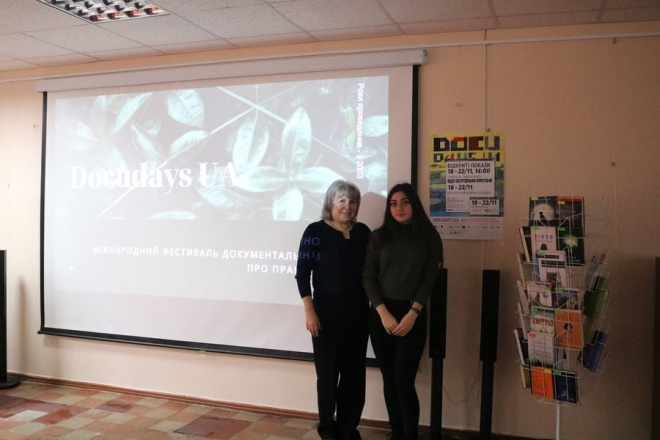
Photo credit: Docudays UA
We studied a lot, because events of this kind are serious work. The moderator’s training is important, because they must be able to keep up the level of discussion, help the audience understand the values of the characters, draw attention to prominent details and certain accents that the filmmaker wants us to notice. They must be able to create a sincere atmosphere, support the shy audience members and help them speak up, and restrain the ones who talk too much. They must be able to avoid conflict at the most passionate moments in the discussion, neutralise provocations.
To make sure that every question from the audience is answered, we constantly looked for experts on various topics for a professional discussion, we fundraised to rent rooms for screening and all kinds of other things we needed.
We have tried out several screening formats. Screenings for a large audience of students did not work out; in the case of the youth, it is better to watch and discuss films in smaller groups rather than in large film halls. We held screenings in cafes. This work is inspiring because you realise that you are not alone in the field of human rights, there are so many of us.
It’s hard to even evaluate the support we got from our colleagues in the Network. There wasn’t a single case when you asked another coordinator for advice or help (and nowadays we need both advice and help, because there are new screening formats online, in collaboration with colleagues from other regions) and were denied it.
Your colleagues immediately engage with your problems and you always feel supported. I also gladly help if someone needs it. Our Network is synergy.
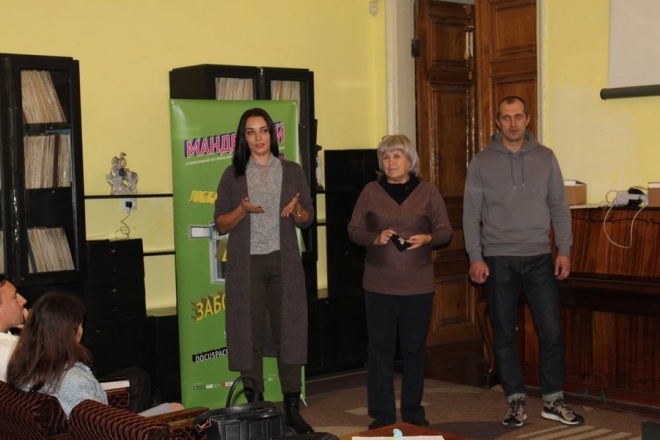
Photo credit: Docudays UA
CONVERSATIONS AND DISCUSSIONS
At our festival, we do not only watch films but also use the lives and actions of the characters to discuss important topics and our problems. And here it is very important that the moderator is restrained and moderate. Sometimes it is very hard to keep your cool, but you understand your level of responsibility, you realise what the consequences of a moderator’s lack of restraint can be, and this helps you not to give in to the audience’s emotional wave.
In 2018, the festival topic was Equal Equalities. We were worried because it’s a topic that still provokes a lot of discussion in society. We have people who defend tradition in every aspect of life. These “traditionalists” do not accept equality between men and women, they don’t understand why human rights apply to everyone without exception, including criminals, and when it comes to queer communities, they resort to aggression.
Sometimes this even happens with people who are ideologically close to us. A friend of ours had a girlfriend who eventually broke up with him because she realised that the LGBT community is more of her group. Our young friend took this news very painfully.
And then we had the Travelling Festival, we were organising screenings together. I considered it and discussed with my colleagues if we should invite him to the screening and discussion of a film about this topic. I did invite him. There was an intense discussion after the film, he participated in it, and then he felt overwhelmed by emotion and left the room. The expert we invited to the event brought him back.
So this guy kept listening, then his logical thinking kicked in, he started considering the arguments of both sides and then participating in the discussion, now without categorical rejection, in a more reflective and moderate manner.
After watching a film, people are initially more emotional, they are not afraid to speak categorically, and sometimes even aggressively, but during the discussion, when there are different opinions, they learn to think and express their position in a reasoned way. For me, these changes in people during discussions are the most valuable thing in my work.
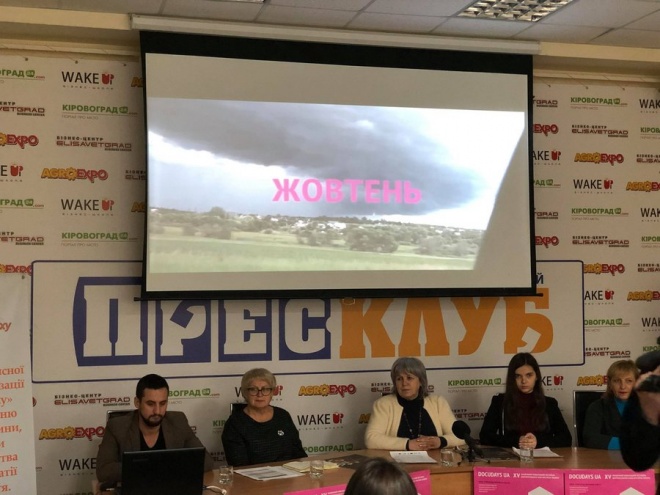
Photo credit: Docudays UA
Last year, we found a new location for our events, the Honcharenko Centre. It’s an open space on the roof furnished for film screenings. We showed the film Unseen there. It’s a film about childbirth trauma and women who are forced to keep silent due to pressure by their circle or medical personnel. The screening was over, the discussion was underway, it was late, 10 p.m. But people weren’t leaving, they were asking: “Let’s also watch this film tomorrow, I want to watch it again, bring my mom, friend, sister, husband…” Moments like this are a true celebration for me and my team.
WAR
The first two weeks I was in shock, I didn’t understand what was going on. Neither I nor my family and friends believed that the full-scale war would begin. My husband called my son on 24 February: “Ukraine is being bombed, it’s a war,” and my son hadn’t seen the news yet, so he didn’t believe it.
Later he said: “You have to evacuate, and I’ll sign up for the Territorial Defence.” My husband and I didn’t go anywhere, and my son and his wife signed up to defend Kropyvnytskyi. They were in the city for a few months. Then they were sent to the East.
My son and his wife died in battle near Severodonetsk.
WORKING FOR VICTORY
From the first days of the invasion, we’ve been fundraising for military equipment. We receive money both from Ukraine and from abroad. We buy the equipment in the Czech Republic. First we carried the bulletproof vests across the border by wearing them, “for personal use,” so to speak. Because if you buy a whole batch, you have to pay tax, but for us every penny is worth its weight in gold.
We also haven’t abandoned our environmental work. The Kirovohrad Region has problems with water. We can’t drink it. We’ve asked our Czech partners, NGO NESEHNUTI, and they gave us a Sanosil water purifier for personal use and for purifying water in wells. It’s a means of disinfection. It prevents the growth of bacteria, viruses, yeast, mold for a long time.
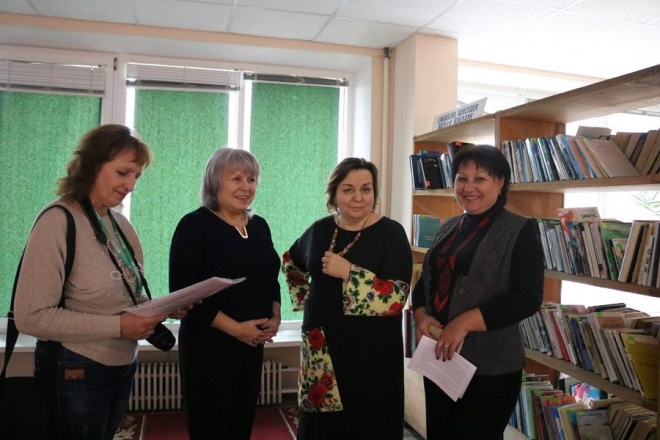
Photo credit: Docudays UA
Now we’re working with our communities, giving them the purifier and tablets to clean water in wells which we receive from UNICEF, so they can clean the wells in villages by simply dropping pills in there. We also regularly send these purifiers to the frontline. When my son and daughter-in-law were fighting in the East, near Lysychansk, the disinfector saved them. The bridges were destroyed, water wasn’t brought in, they took water from a marsh, purified it and drank it.
ABOUT THE FUTURE
We believe in our victory. We do and will continue to do everything we can and everything we have the strength to do to achieve it. Right now we’re preparing for the Travelling Festival, because our Festival is one of the powerful ways to change the world for the better.
Interview recorded by Tetiana Kulyk